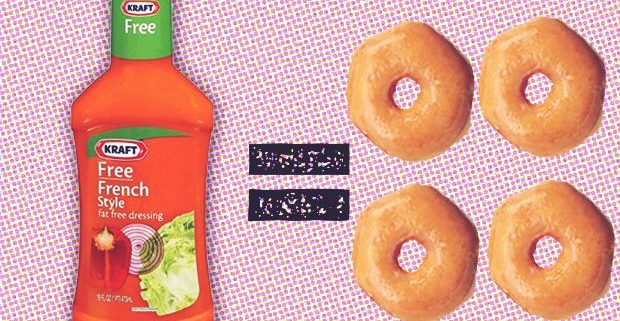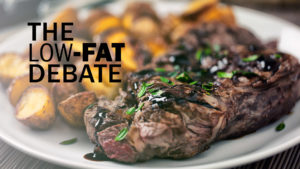Fat-free Dressing and Your Immune System
What foods are you sensitive to? Gluten? Dairy? What about eggs? Any food allergies to even some of your favorite foods like nuts and nut butters?
Why do food allergies seem to be more prevalent than ever? For some, it’s all about the detrimental affects on the immune system. But why do some seem to sail on through life with no “ill affects?”
For that I’d like to talk about your salad dressings, sauces, and sides. Namely, just the fats, ma’am. After taking a moment to learn from this information, perhaps you will rethink the “fat-free” dressing on your Cobb or Ceasar.
“Wait, Jodelle, what on earth does my fat-free dressing have to do with my immune system?”
I will answer this by taking you on a tour of your digestive system, so saddle up on top of the nutritious meal you just consumed and let’s go “with our gut” so to speak.
The Stomach
Welcome to the stomach, where your food should become an acidic mass of broken down amino acids, and other nutrients. Unfortunately, what’s this? You don’t have very much stomach acid! In fact, you are quite low. The amino acids from proteins are not being broken down, and microorganisms from the dirty hands of the chef who prepared your salad toppers are not being killed off. Hence, dangerous pathogens and parasites are about to enter the rest of your body where your immune system functions from, and, on top of that, the mass of your meal is not becoming acidic enough for the next stop on the tour: the duodenum. Also, since we noted your meal is fat-free, we seem to not have enough fat to help move the mass downward. Let’s see what happens next.
The Duodenum and Small Intestine
Well, it was quite difficult to get down here without the fat, but your mass of much to alkaline food are now due for some bile to see about improving the stodgy, improperly broken down mass. Wait, you didn’t eat any fat with with this meal! So no bile is sent to the duodenum by the gallbladder. The fat WOULD HAVE stimulated something called CCK (or Cholecystokinin) which WOULD HAVE stimulated the gallbladder to release bile to further break up the mass. And on another note, we can see that secretin was not released to do it’s job of neutralizing the food so let’s travel a bit farther down to see what is happening now.
Here we are deeper in the small intestine and there seems to be an issue here. Do you see how the undigested food particles are passing into the bloodstream? This is known as Leaky Gut. Seems like this lack of fat has been going on for awhile and the undigested food has caused inflammation and perforations (or open junctions that should be tight) which is allowing the undigested particles to pass through and cause a reaction by the immune system. You see, it’s kind of like a screen door on your house. Similar to how a screen door allows the breeze in, our intestinal wall should only allow nutrients from our digested foods to pass through. But when someone comes along and pokes holes in your screen door, and the bugs start getting in, what do you do? You whack them with a fly swatter. This is also similar to how your immune system reacts when undigested particles are entering that shouldn’t be there.
The result? Food allergies, sensitivities, and intolerances. Not too mention over time, allergies in general become more prevalent. How so? The immune system flags the undigested particles to be destroyed and sees that food as a pathogen. Therefore it creates antibodies to this food particle, say for instance wheat, so that the next time you eat wheat it invokes an attack on it by the immune system. This could be anything from headaches to cramping and bloating to fatigue, or what’s worse: chronic auto-immune disease like hypothyroidism. The constant exposure compromises the immune system over time, leaving your immunity lacking and allergies, sickness, and disease are next in line.
But wait there’s more to see!
The Large Intestine
Interestingly, you’ll note how the large intestine is empty as we are passing into it. Why? The duodenum signaled the Large Intestine to empty it’s contents (most likely through uncomfortable diarrhea) as it noted the undigested and putrifying nature of the food coming from the stomach. Perhaps you may have made run for the “loo” shorty after eating and now you know why! In roughly 3-10 hours this mass of undigested food stuffs will turn into fecal matter and be further fermented and dealt with by normal bacteria in the colon. But since you’ve been low on stomach acid, there are some bacteria that has made it’s way down here that probably shouldn’t be here. These guys are going to give you some excessive gas and bloating so I caution you about going to that dinner party tonight, because you may clear the room with your flatulence.
So here we are at “the end” literally, and as you can see, the choice of a low fat diet coupled with low stomach acid can cause you to end up in a very “stinky” situation. But even more than that, we can understand that this slow, downward spiral of the digestive capabilities can cause a slow downward spiral of your delicate immune system and health overall.
If you suspect that a low fat diet and low stomach acid could be an issue for you, try emplementing the following:
Aim to eat more a moderate fat diet, such as 30% of your calories coming from good healthy fats. For instance, avocados, coconut oil, egg yolks, and sprouted nuts and seeds are all great fat options.
Add in some raw, unfiltered apple cider vinegar to your water just before meals. Or add some apple cider vinegar to your salads and veggies as well. This helps to amp up the production of stomach acid.
Lemon juice can help the production of stomach juice as well. And try adding lemon to hot water instead of cold, sipping with your meals to help with digestion. Meal absorption does much better with warm beverages rather than cold which should be sipped between meals.
If food allergies and allergies in general have become a concern, consider rotating in some different plant-based food sources and avoiding the more processed foods for a period of a few weeks to allow the gut to ease inflammation. For example, avoiding gluten-containing foods and swapping out plant-based gluten-free foods such as sweet potatoes, berries, and wild rice.
Consider talking to your health care practitioner about supplementing with some Betaine HCl + pepsin. This is a wonderful supplement that will help your stomach produce stomach acid naturally.
Go with your gut on this one. If low-fat doesn’t taste that good, and food allergies and intolerances have become a problem for you, there is most likely an obvious reason for that. Our bodies need fat, they need good digestion, and if the two go hand-in-hand then it’s time to step away from the dogma, and listen to your immune system’s innate needs.
In fact, I think my immune system is telling me to go have some homemade guacamole.





Leave a Reply
Want to join the discussion?Feel free to contribute!